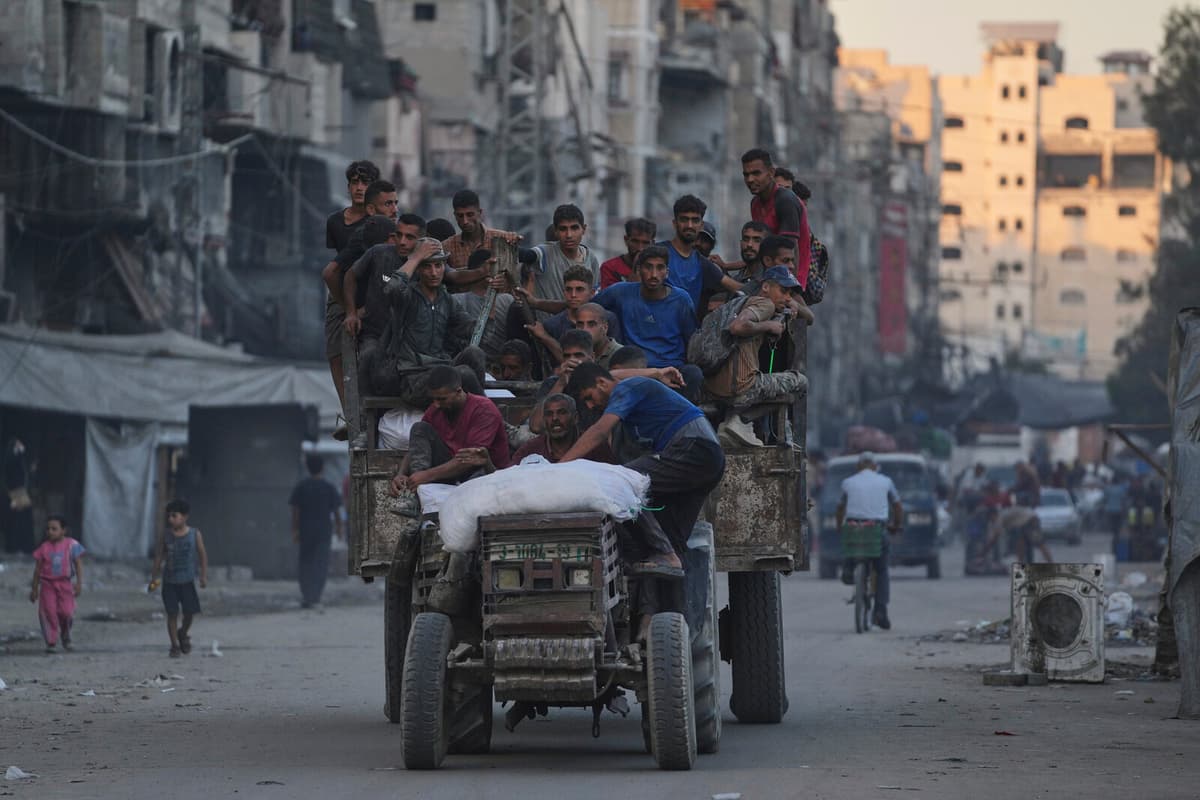There is no way to carry out the Israeli plan in a safe and dignified manner, states ICRC chief Mirjana Spoljaric.
"Such an evacuation would trigger a massive movement of people that no area in the Gaza Strip can accommodate, given the widespread destruction of civilian infrastructure and the extreme lack of food, water, shelter, and care," she says.
The statement comes after the Israeli military on Friday declared Gaza City a "dangerous combat zone". Over the past week, Israel has repeatedly bombed and shelled parts of the million-city in northern Gaza Strip to pave the way for its planned ground offensive. On Saturday, intense attacks were reported, among other things, from the Zeitun neighborhood.
Alleged to stop humanitarian aid
News agency AP reports, citing a source in the Israeli administration, that Israel will soon reduce or even completely cut off humanitarian aid to parts of northern Gaza.
According to the information, Israel will stop humanitarian aid dropped from the air over Gaza City in the coming days and reduce the number of trucks with supplies allowed into northern Gaza. This is part of the preparations for evacuating the city's hundreds of thousands of inhabitants.
AP further reports that no humanitarian aid has been dropped from the air for several days, compared to more or less daily drops in recent weeks.
Israel has not yet issued an official evacuation order, but has previously claimed that all residents of the city and its surroundings must be moved south before the invasion.
"Incomprehensible" evacuation
Such an evacuation would affect "civilians who are already traumatized by months of fighting and terrified of what's next", according to Spoljaric. Many are also unable to flee due to starvation and disease.
"This makes the evacuation not only impossible but also incomprehensible under current conditions," she says.
The ICRC chief has previously stated that the war in Gaza has "torn apart all sense of humanity".
The Israeli military (IDF) has not responded to AP's questions about the reports of stopped humanitarian aid in the north or how they plan to ensure access to food and medicine for the Gaza Strip's more than two million inhabitants when the heavily criticized evacuation plans are implemented.






